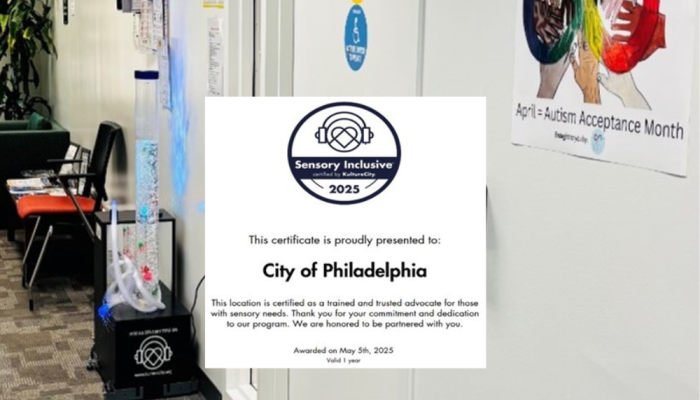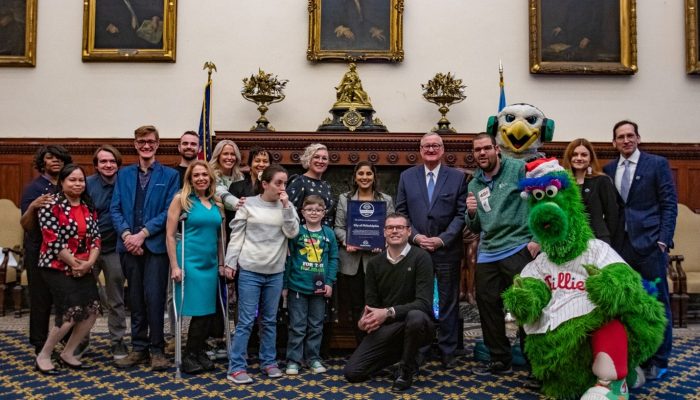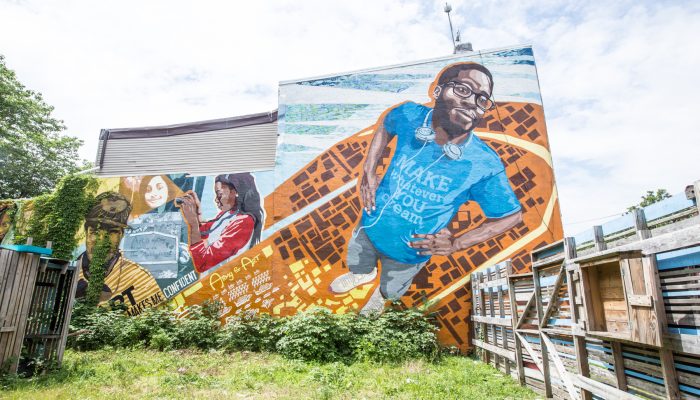After working as the Americans with Disabilities Act (ADA) Coordinator for the Seattle Housing Authority for several years, Saron McKee recently joined the Office of Diversity and Inclusion as the City of Philadelphia’s Director of ADA Compliance.
Today, we chatted with Saron about her new, exciting role and what she hopes to accomplish as the City’s Director of ADA Compliance.
Q: First off, welcome to Philadelphia! What about your recent move to Philadelphia excites you most?
A: Thank you, I’m very happy to be in Philadelphia and starting this position! There are so many things to love about Philadelphia – so far, my top three favorites are the friendly people, the beautiful historic buildings, and the public art. I am constantly surprised when I come around a corner and see yet another mural or statue!
Q: So, most people have heard of the Americans with Disabilities Act, but what does it actually entail?
A: The Americans with Disabilities Act (ADA) is a civil rights law that prevents discrimination and ensures equal participation in all aspects of society for people with disabilities.
Title II of the ADA prohibits discrimination in state and local government and allows qualified people with disabilities to request a change in the way the City does business so they can engage with City services, programs or activities.
Q: Okay — so then your role as the City’s Director of ADA Compliance is to make sure the City is following the guidance of the ADA?
A: Yes, exactly. My role is to ensure that the policies, procedures, and practices of the City do not lead to unintended discrimination and to make certain that people with disabilities have the same access to participate in all aspects of the City as people without disabilities.
Q: How did you get into this work?
A: Years ago, as an artist with disability, I learned that many art organizations were struggling to make their buildings usable by people with disabilities. I enrolled in training as a practical solution to address the problem. I’ve come to see this as the kindling that sparked the fire for my career. Later, I went on to complete my formal education and thought I might go into a career of psychology; however, I love the idea that by problem solving and eliminating barriers, we create equity.
Q: It sounds like this work is a mixture between policy creation and advocacy for people with disabilities.
A: Exactly. It’s not just about meeting the standards — it’s about making Philadelphia a great city to live in for people with disabilities. We want to make sure that people with disabilities have equal access to all aspects of the City including access at events, curb cuts, and the ability to use the phila.gov website. At the same time, practice advocacy. One way we can practice advocacy is to work towards ensuring people with all types of disabilities can be part of City discussions, planning and decisions.
Q: I know you just started, but what kind of work is being done to make Philadelphia a more accessible place?
A: There is an extensive review of the City’s policies, practices, and procedures that will lead to a detailed action plan. Additionally, the City is working to ensure effective communication and training to avoid discrimination and provide modifications.




